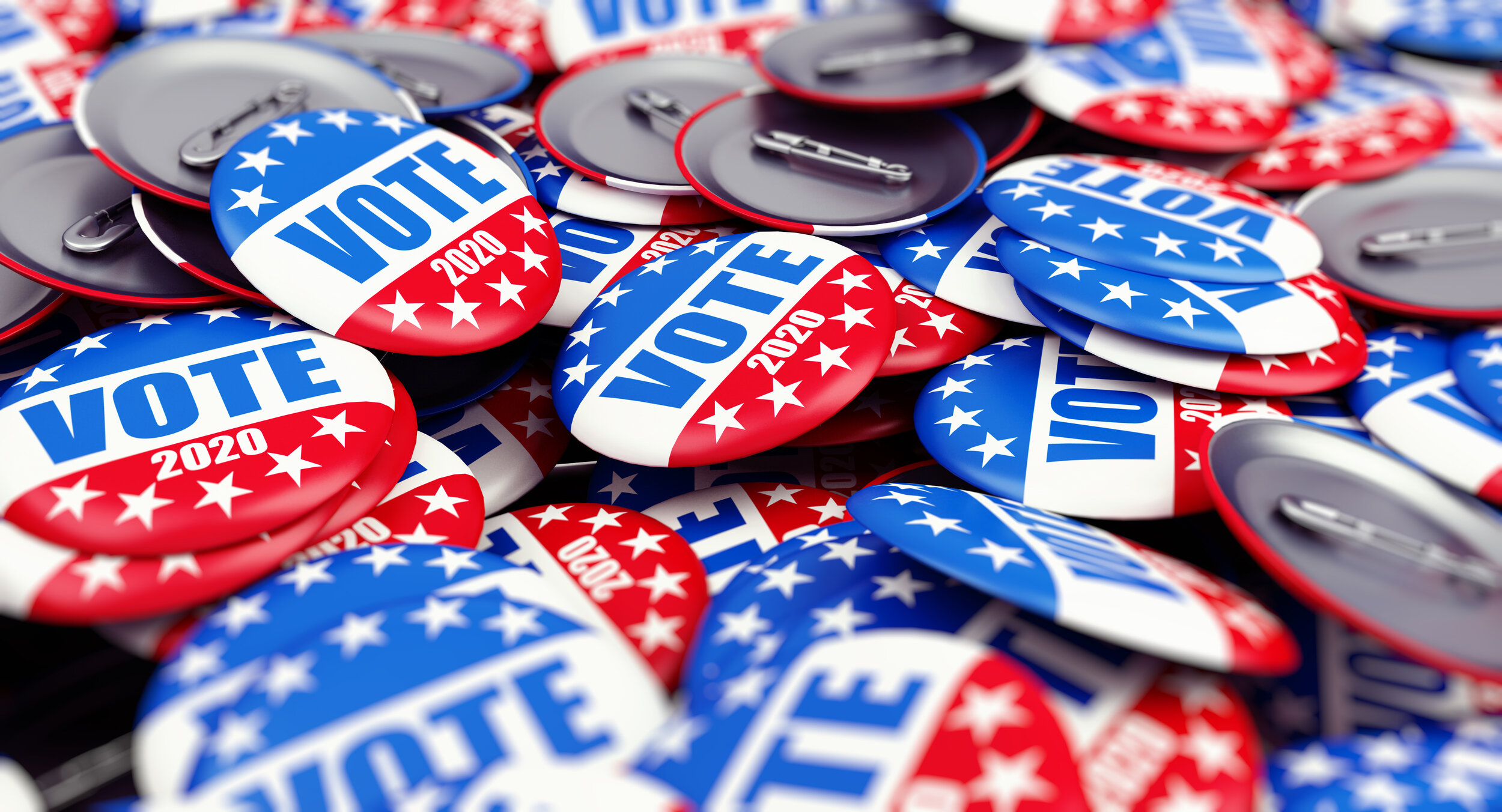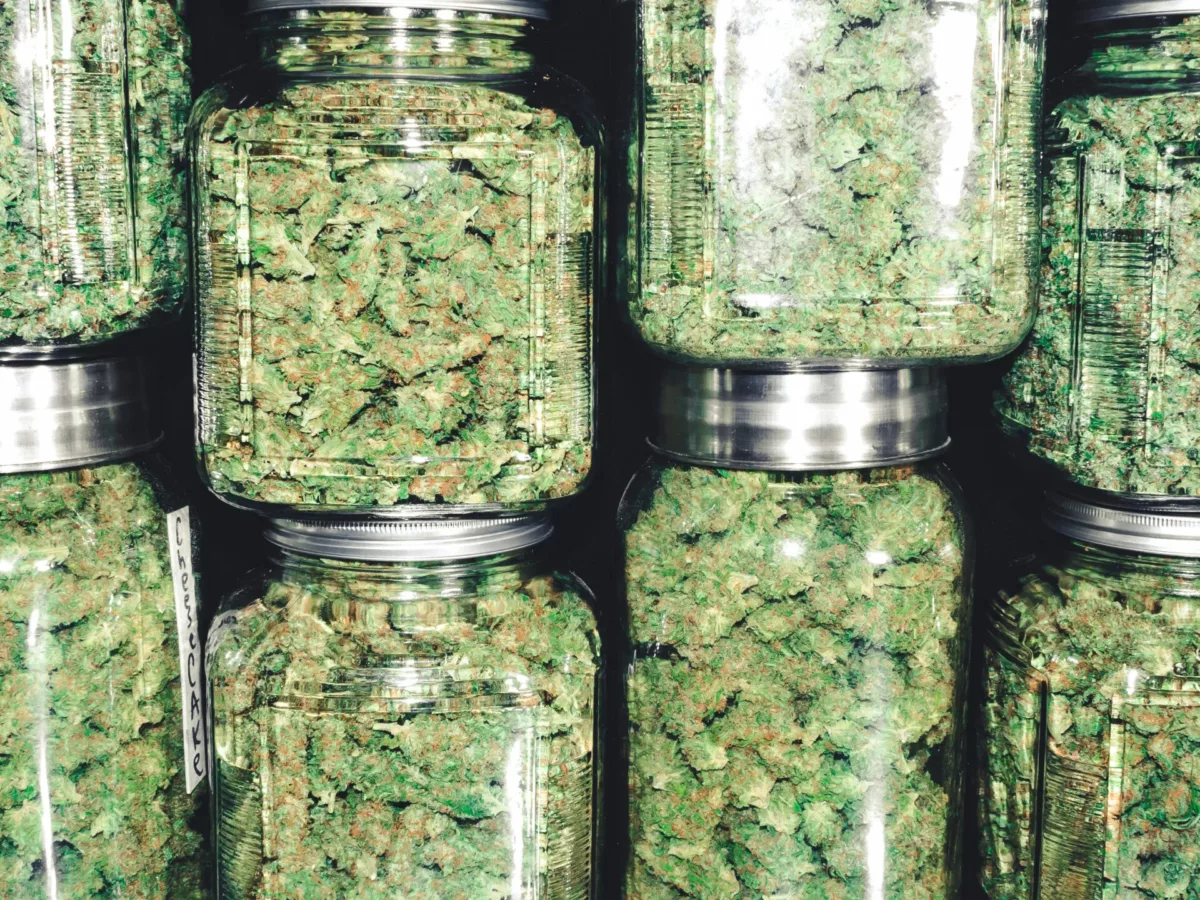Cannabis, while it is not one of the main topics this election season, is one where most Americans agree. A majority of Americans (66%) now support cannabis legalization, according to a Gallup poll released October 2019. In 2010, Gallup recorded that nationwide support for cannabis legalization was at just 44%. Meanwhile, 91% of U.S. adults believe that cannabis should be legalized for medical or recreational use, as reported by Pew Research Center in a November 2019 poll.
Since 1996, 33 states and the District of Columbia have legalized medical cannabis, while 11 states have legalized cannabis for recreational use. There have also been multiple nationwide efforts to shift public views on the drug and end the federal prohibition. This past year, several bills were introduced to deschedule cannabis, as seen with Sen. Cory Booker’s Marijuana Justice Act and U.S. Senate majority leader Chuck Schumer’s and Rep. Hakeem Jeffries’ Marijuana Freedom and Opportunity Act.
A 2010-published report by think tank Cato Institute estimated that drug legalization could yield tax revenue of $46.7 billion annually with approximately $8.7 billion coming from the legalization of cannabis if taxed at rates comparable to those on alcohol and tobacco. Legalization is now no longer a partisan issue. Even so, ACLU reports that cannabis arrests account for over half of all drug arrests in the United States with African Americans being 3.73 times more likely than whites to be arrested.
With Donald Trump in office, little has changed on the federal level to decriminalize or deschedule cannabis. Even so, with the presidential election nearing closer, the possibility of widespread policy reform seems cautiously optimistic.
For those who need a guide on what the President and each Democratic presidential candidate have in mind for the future, The Outlaw Report has detailed each person’s platforms and past legislation. Quickly navigate through this page with the following table of contents.
Bernie Sanders | Elizabeth Warren | Tulsi Gabbard | Amy Klobuchar | Tom Steyer | Pete Buttigieg | Michael Bloomberg | Joe Biden
Bernie Sanders
Vermont Sen. Bernie Sanders has been a longtime supporter of cannabis. In 1995, he co-sponsored a bill that would have legalized medicinal cannabis for “life-threatening or sense-threatening illnesses.”
His more recent legislation, called the Ending Federal Marijuana Prohibition Act of 2015, marked the first time a Senate bill was filed with the goal to end federal cannabis prohibition. He is also credited as the first major presidential candidate to endorse marijuana legalization during his first presidential bid.
In October 2019 at 4:20 p.m. EST, Sanders released an ambitious, pro-cannabis plan on his website that vows to legalize cannabis within his first 100 days in office. It proposes expunging all past cannabis convictions and reinvesting in communities hit hardest by the War on Drugs.
Sander’s plan would also create a $20 billion grant program to provide funds to entrepreneurs of color. Formerly incarcerated individuals would be provided training and resources to start their own businesses.
Other past bills that Sanders has co-sponsored have focused on legalizing medical marijuana for military veterans and protecting banks that serve cannabis businesses. He is also a co-sponsor of the Marijuana Justice Act.
Elizabeth Warren
Massachusetts Sen. Elizabeth Warren sees cannabis policy reform as a social justice issue.
“It’s not equal justice when a kid with an ounce of pot can get thrown in jail while a bank executive who launders money for a drug cartel can get a bonus,” Warren said in a statement. “It’s not equal justice when, for the exact same crimes, African Americans are more likely than whites to be arrested, more likely to be charged, more likely to be convicted, and more likely to be sentenced.”
As a “catalyst” for cannabis legalization, Warren has co-sponsored several pro-cannabis bills, such as the Marijuana Justice Act, which would deschedule cannabis, as well as the STATES Act, which would allow states to set their own policies on cannabis. She has also supported providing banking access to cannabis businesses and protecting military veterans and immigrants from being punished for working at state-legal cannabis businesses.
On Warren, Strekal told The Outlaw Report, “When she speaks on the subject of marijuana legalization, she demonstrates a clear command of understanding who has been harmed under its criminalization.”
Marijuana Moment reported that Warren’s views on cannabis have shifted over the past few years. She was “generally” supportive of broader reform in 2011, saying that medical cannabis “is one thing.” Later, in 2016, she did not support her state’s adult-use cannabis bill.
Tulsi Gabbard
U.S. Rep. Tulsi Gabbard recognizes the medicinal benefits of cannabis and is a vocal supporter of full legalization on the federal level.
As a member of the House Cannabis Caucus, she has introduced two pro-cannabis bills: the Ending Federal Marijuana Prohibition Act of 2019 and the Marijuana Data Collection Act of 2019. She has also backed the Marijuana Justice Act as well as the Marijuana Opportunity Reinvestment and Expungement (MORE) Act.
In a statement, she said, “Our current criminal justice system puts people in prison for smoking marijuana, while allowing corporations like Purdue Pharma who are responsible for the opioid-related deaths of thousands of people to walk away scot-free with their coffers full.”
In 2018, Gabbard earned an endorsement from NORML when she ran for re-election in the House of Representatives.
Amy Klobuchar
Minnesota Sen. Amy Klobuchar supports cannabis legalization and shared with Vice that she has used cannabis, though not since her “college days.” She is usually quiet about the issue of cannabis legalization with no mentions on her social media accounts or website. She has also never sponsored her own cannabis law reform legislation, but she has signed onto multiple bills that her colleagues have filed.
One notable bill that Klobuchar has supported is Sen. Elizabeth Warren’s Strengthening the Tenth Amendment Through Entrusting States (STATES) Act. Klobuchar has also supported the expansion of cannabis research by cosponsoring Sen. Orrin Hatch’s Marijuana Effective Drug Studies (MEDS) Act. Her support for cannabis research can also be seen through a letter to former Attorney General Jeff Sessions that she co-signed in 2018, demanding an update on the status of applications to manufacturing cannabis for research purposes. The Canna Law Blog has noted, though, that Klobuchar was the only Democratic presidential candidate in the Senate to not co-sponsor the Marijuana Justice Act, which proposes amending the Controlled Substances Act to legalize cannabis.
In the New Hampshire debate in February 2020, Klobuchar claimed to have “one of the most successful drug courts in the country.” She is known for having “tough-on-crime” policies as a former prosecutor for Hennepin County, Minnesota. From 1999 to 2007, she sought more prosecutions and harsher penalties against drug dealers, saying in 2006 that “drug offenders” should “serve a lengthier sentence … [and] be behind bars.”
Early in her career, Klobuchar opposed cannabis legalization. At a 1998 debate during her run for County Attorney of Hennepin County, Klobuchar said, “I believe when you look across the world at what’s been happening, people have realized that legalizing drugs is not the answer.”
“It’s clear that she’s evolving on the position and has evolved since her time as prosecutor,” Cavendish tells The Outlaw Report, Despite her past work, Cavendish added, Klobuchar should be considered a proponent of cannabis reform if elected president.
Tom Steyer
When a voter at a town hall in Iowa asked Billionaire philanthropist Tom Steyer if he was supportive of cannabis legalization, he said, “I’m from California. Are you kidding me?”
Despite his blunt answer, Steyer is not well known for his drug policy, and he has no background in political office. On his website, he vows to end the war on drugs by legalizing cannabis and expunging past records. The plan that he has proposed is a national referendum that would allow voters of each state to determine legalization.
In an interview with the Las Vegas Sun in August 2019, he voiced his concerns on amending federal laws to allow banks to finance cannabis businesses with no risk of losing support of the Federal Deposit Insurance Corporation.
Pete Buttigieg
The former South Bend, Indiana mayor could become the first openly gay and youngest president if elected. He did not act on any cannabis legislation during his time as mayor and has claimed that he “didn’t smoke a lot in college,” but it was a joint that led him to learn about white privilege. In an interview at the 2019 South by Southwest Festival in Austin, Texas, he said that it was during his time as a student at Harvard University that a campus policeman caught him with a joint that an acquaintance handed to him. The policeman stopped and frisked the college-age Buttigieg, but, luckily for him, no arrest was made.
“If I were not white, the odds of that having been something that would have derailed my life are exponentially higher,” said Buttigieg, also stating, “It’s one of many reasons why I think we have to end the war on drugs and move towards the legalization of marijuana.”
In July 2019, the former mayor released the Douglass Plan, a proposal named after abolitionist and author Frederick Douglass that would end “racist structures and systems.” Some of the goals of this plan are to eliminate incarceration for drug possession, legalize cannabis, and expunge past convictions. With this plan, Buttigieg hopes to reduce the country’s incarceration rates by 50%.
While he has openly shown support for decriminalization, his time as mayor of South Bend from January 2012 through January 2020 did not yield positive results when it came to cannabis arrests.
Buttigieg claimed in the New Hampshire debate in February 2020 that “drug arrests in South Bend were lower than the national average—and specifically to marijuana, lower than Indiana.” Even so, The Intercept reported that African-American residents of South Bend were 4.3 times more likely to be arrested for cannabis possession than white residents. That is above the statewide average during the same time frame where African Americans were 3.5 times more at risk of a cannabis arrest. Recently, he blamed the increase on “gun violence and gang violence,” saying, “We adopted a strategy that said that drug enforcement would be targeted in cases where there was a connection to the most violent group or gang connected to a murder.”
“He either lied or didn’t know what he was talking about and made a false assumption,” Strekal told The Outlaw Report. “I don’t think that it’s an issue that he has previously given much thought during his tenure as mayor.”
Buttigieg “doesn’t seem to have a good standing on racial justice issues right now,” MPP’s Cavendish tells The Outlaw Report.
Michael Bloomberg
Former New York City Mayor Michael Bloomberg opposes cannabis decriminalization, describing policy change for “another addictive narcotic” as the “stupidest thing anybody has ever done.” He has also described medical cannabis as “one of the great hoaxes of all times” and believes that it can lower IQ.
In 2001, Bloomberg famously spoke to New York Magazine about his prior cannabis use, saying, “You bet I did, and I enjoyed it.” Advocacy group NORML later launched a broadcasting campaign with his quote, displayed on buses and in a full-page advertisement in The New York Times. Soon after, Bloomberg expressed regret for the remarks, telling The New York Times, “I would side with those that think [decriminalization is] a bad idea.”
Since announcing his run for the 2020 presidential race, his views have somewhat flipped. Bloomberg described the incarceration of people for cannabis as “dumb,” saying, “What I really object to is putting people in jail for marijuana.”
In an interview with The Outlaw Report, Strekal said, “I don’t take any sincerity with that comment that he made.” He mentioned the stop-and-frisk policy that Bloomberg championed as based on “unwarranted, unfounded, unjustified suspicion” for younger people of color.
Bloomberg’s three terms as Mayor outpaced the cannabis possession arrest rates under Ed Koch, David Dinkins, and Rudy Giuliani, combined, according to The Drug Policy Alliance’s report released in March 2013. New York City’s cannabis arrests in the first four months of 2011 increased by nearly 20% year-over-year with nearly 85 percent of those arrested being Latinx and African American.
The former Mayor has also actively opposed legislation in the past that could have reduced the punishment of cannabis possession. In 2011, former Assemblyman Hakeem Jeffries and Sen. Mark Grisanti proposed making possession of 25 grams or less of cannabis result in a court summons and fine rather than time in jail. Bloomberg’s mayoral aide told The New York Times at the time that cannabis arrests are “an effective tool for suppressing the expansion of street-level drug markets and the corresponding violence.”
An audio clip from an Aspen Institute speech in 2015 reveals Bloomberg saying, “We put all the cops in the minority neighborhoods. Yes, that’s true. Why’d we do it? Because that’s where all the crime is.”
Bloomberg later showed support for ending the practice of arresting individuals for possessing small amounts of cannabis in public view. Even so, he vetoed two reform bills that would have cut down on police misconduct and stop and frisks, which increased from less than 100,000 stops in 2001 to nearly 700,000 in 2011. Eight years later, under Mayor Bill de Blasio, the New York Police Department reported that the number of stops and frisks has reduced by 98 percent.
Joe Biden
Former Vice President Joe Biden has told voters, “Nobody should be in jail for smoking marijuana.” While he is currently in support of decriminalizing and rescheduling cannabis, his position has shifted over time.
In 2014, Biden told Time that he believed convicting people for cannabis was a “waste of our resources.” He continued, “That’s different than [legalization]. Our policy for our Administration is still not legalization, and that is [and] continues to be our policy.”
Earlier, in 2010, Biden allegedly told ABC News that cannabis is a “gateway drug,” but recently stated that the quote was incorrect. He said “some say” it is, telling CBS News, “I don’t think it is a gateway drug. There’s no evidence I’ve seen to suggest that.” In the same month that he made that statement, he told the public at a Las Vegas town hall that “there’s not nearly been enough evidence that has been acquired as to whether or not it is a gateway drug.”
While Biden says that he supports decriminalizing cannabis, he has also said that he hopes to reschedule it as a Schedule II drug. This would place cannabis in the same category as drugs with a high potential for abuse, such as cocaine and methamphetamine. Justin Strekal, political director for the National Organization for the Reform of Marijuana Laws (NORML), tells The Outlaw Report that Biden is conflating the idea of cannabis decriminalization with cannabis rescheduling.
“[Making cannabis a Schedule II drug] would maintain the criminalized status of marijuana in this country, which, as a former chair of the judiciary committee, either demonstrates that he doesn’t understand how the Controlled Substances Act works, or he is deliberately lying about what his position means in the hopes of maintaining the criminalized nature of marijuana in the United States,” said Strekal.
Biden “doesn’t seem to have a clear position” and it doesn’t seem to be a priority for him, according to Marijuana Policy Project Communications Manager Violet Cavendish in an interview with The Outlaw Report. She described Biden and Michael Bloomberg as the two “most troublesome” candidates when it comes to cannabis policy reform.
Rolling Stone deemed Biden one of the most anti-cannabis presidential candidates currently running. Leafly also described him as one of the original architects of America’s drug war.
During his time as Delaware’s Senator, Biden helped establish the Office of National Drug Control Policy (ONDCP), or—as he described it—the “drug czar.” Since it was established in 1988, the ONDCP has coordinated the federal government’s anti-drug efforts.
One of Biden’s earlier bills was the Violent Crime Control and Law Enforcement Act of 1994, the largest crime-control bill in U.S. history. It was originally written by Biden, sponsored by Texas Rep. Jack Brooks, and later signed into law by President Bill Clinton. Critics of the legislation have credited it for contributing to the increase in incarceration. The law imposed tougher prison sentences and backed grant programs that encouraged police officers to carry out more drug-related arrests, according to Vox.
Photo via 3dfoto/Shutterstock






